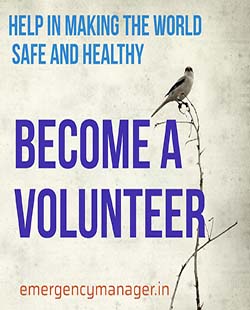
These symptoms are applicable in most disasters.These symptoms are applicable to victims and rescuers both.
Some typical symptoms of stress include:
- Not wanting to take part in things that normally bring joy.
- Feelings of anxiety or hopelessness.
- Thinking about self-harm.
People are often reluctant to acknowledge emotional change; however, the body has ways of communicating mental distress. Signals may include:
- Persistent headaches.
- Difficulty concentrating.
- Stomach problems.
- Insomnia.
- Poor appetite or overeating.
- Low energy.
The body’s ability to communicate emotional problems allows you to begin healing or to help those around you. The following actions and resources offer opportunities to address symptoms you discover in yourself or others:
- Talking: Talking with somebody can be the most healing thing to do. Whether it’s family, friends, neighbors, spiritual leaders, or a counselors, conversations about life start the process of feeling better.
- Listening: Listening to somebody else’s troubles may help you feel more comfortable in talking about your own. Listening also reinforces a sense that you “aren’t in it alone.” Try starting a conversation with a simple question like “How are you doing?” “Is your family ok?” Showing others that you care about them will make both of you feel less alone.
- Routine: Establish a routine to help set a new normal. Get up at the time every day, take care of your hygiene, and set goals. If your work and school schedules are interrupted, make new ones. Block off times to take care of tasks you look forward to and those you dread: paperwork, recovery-related telephone calls, social networking—having order in your day lets you know that you’re still in control.
- Exercise: Physical exercise really is good for body and mind, there are proven positive reactions. Maybe your fitness center is closed or the bike/running trail is unusable – then find something else to keep your body active.
- Go outside and meet with people: Some people feel like they need to stay in bed when they are stressed. They have harmful thoughts that circle around and around because they are idle. Getting out of bed and visiting a new place can help interrupt those cyclic thoughts. Attend social gatherings or at least take a walk and take note of improvements in your surroundings.
- Check with your primary care physician: Your doctor can help connect you with mental health services. If you were previously seeing a mental health professional, return to your normal psychiatric care provider and routine. If this is not possible you can seek help identifying a new provider at your local health center.
In this mental advisory the concern for children can also be added.Children are more vulnerable both physically and mentally.They need special care of their mental health during and after disasters.
..... .... Login with Google and support us
Thanks


 89
89
